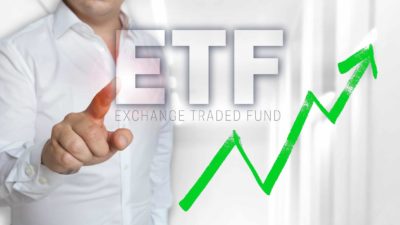July 2022 could be the right month to look at exchange-traded funds (ETFs) with strong growth potential. The Betashares Global Cybersecurity ETF (ASX: HACK) in particular looks like a compelling investment to me at the moment.
For starters, the HACK ETF has dropped by around 25% since the start of 2022. That's a big fall for some of the world's biggest cybersecurity companies.
Knocking a quarter of the valuation off the underlying businesses collectively within this portfolio makes it much more attractive in my opinion.
As investors, we can't control what prices do. But, we can try to choose good investments and buy them at a good time.
A fall of 25% could be too good to ignore when looking at what investors get with the Betashares Global Cybersecurity ETF.
Industry heavyweights
The HACK ETF gives investors exposure to both global cybersecurity giants, as well as emerging players, from across the world.
There are a total of 38 names in this portfolio, but the top 10 make up more than 45%. Those names are: Crowdstrike, Palo Alto Networks, Zscaler, Cisco Systems, Cloudflare, Okta, Booz Allen Hamilton, Thales, Verisign and Check Point Software.
As an example, BetaShares says that Cisco Systems provides leading cybersecurity accreditation and it also offers an extensive range of cybersecurity solutions. Palo Alto Networks has tens of thousands of customers, and offers services such as strong firewalls.
The projected size of the global cybersecurity market is expected to rise from US$137.6 billion in 2017 to US$248.3 billion in 2023, according to Statista.
In my opinion, cybersecurity could be both defensive and offer growth potential. Protecting important information is essential. Even in a downturn, I don't think governments or businesses would want to give cybercriminal free rein of their IT systems.
But, the ongoing digitalisation of the global economy could help drive the collective revenue and earnings of HACK ETF's businesses higher.
What could drive up demand?
According to Varonis sources, around two-thirds of business leaders think cybersecurity risks are rising, with just over half of companies saying their IT departments are not "sophisticated enough to handle advanced cyberattacks". Around 70% of breaches in 2021 were financially motivated. The cost is going up significantly.
According to Fortune Business Insights, the worldwide information security market is forecast to reach US$366.1 billion in 2028.
The Cybercrime Magazine said losses from cybercrime damages were expected to reach $6 trillion by 2021.
Snapshot
At 30 June 2022, the Betashares Global Cybersecurity ETF had produced an average return per annum of 13.7% over the prior three years. That's after the annual management fee of 0.67%.









